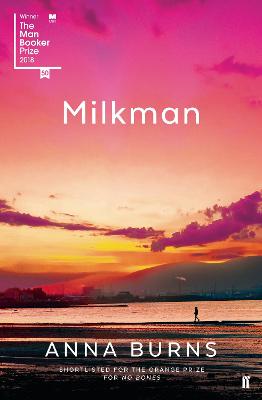Reviewed by clementine on
There is a lot about the writing style that requires careful attention. The most obvious is the lack of proper names: our characters are named only by their function in relation to the protagonist (eldest sister, third brother-in-law, maybe-boyfriend), we are not told where the novel takes place (though through context we know it's Northern Ireland, and that "the country over the border" is the Republic, and "the country over the water" is England), we know of only "our religion" and "the wrong religion", and "the political problems" are never given a name. (Though they're usually known as the Troubles, which is just as bewilderingly euphemistic for violent state-sanctioned ethno-nationalist warfare.)
The narrative style is also tricky - the paragraphs are long and meandering, and tangents are not only common but the method by which most exposition is done. A single event may only be a few minutes or hours long, but it will make up a 60-page chapter because the narration is non-linear and constantly following new threads that explain the climate of the community before ultimately looping back around. Also interesting is the use of collective nouns. For example, the narrator has three younger sisters who are known only as "wee sisters". Dialogue and actions are attributed to all three at once; they are never differentiated as the older siblings are.
Beyond the unusual use of narrative structure and language, there is a lot going on here in terms of sociopolitical ideas. What I find so interesting about this novel is that despite the deliberate vagueness of the language, it is extremely specific in its portrayal of the Troubles and particularly in the way the conflict creates insular, paranoid, gossipy communities. This is a novel about the side effects of nationalist conflict on vulnerable populations, specifically women. Middle sister is relentlessly pursued by a high-level paramilitary, and though she does not want his attention her community decides she is having a (shameful) affair with him and labels her "beyond-the-pale". She has no recourse, and when she tries to explain or reach out for help she is shunned and shut down - by her oldest friend, by her own mother. The "women with the issues" (her community's feminist group) provides some hint of another way, some alternate consciousness, but she is unable to access it.
This one isn't exactly a fun or quick reading experience, but it's interesting, thoughtful, and challenging in the best way.
Reading updates
- Started reading
- 22 December, 2018: Finished reading
- 22 December, 2018: Reviewed
